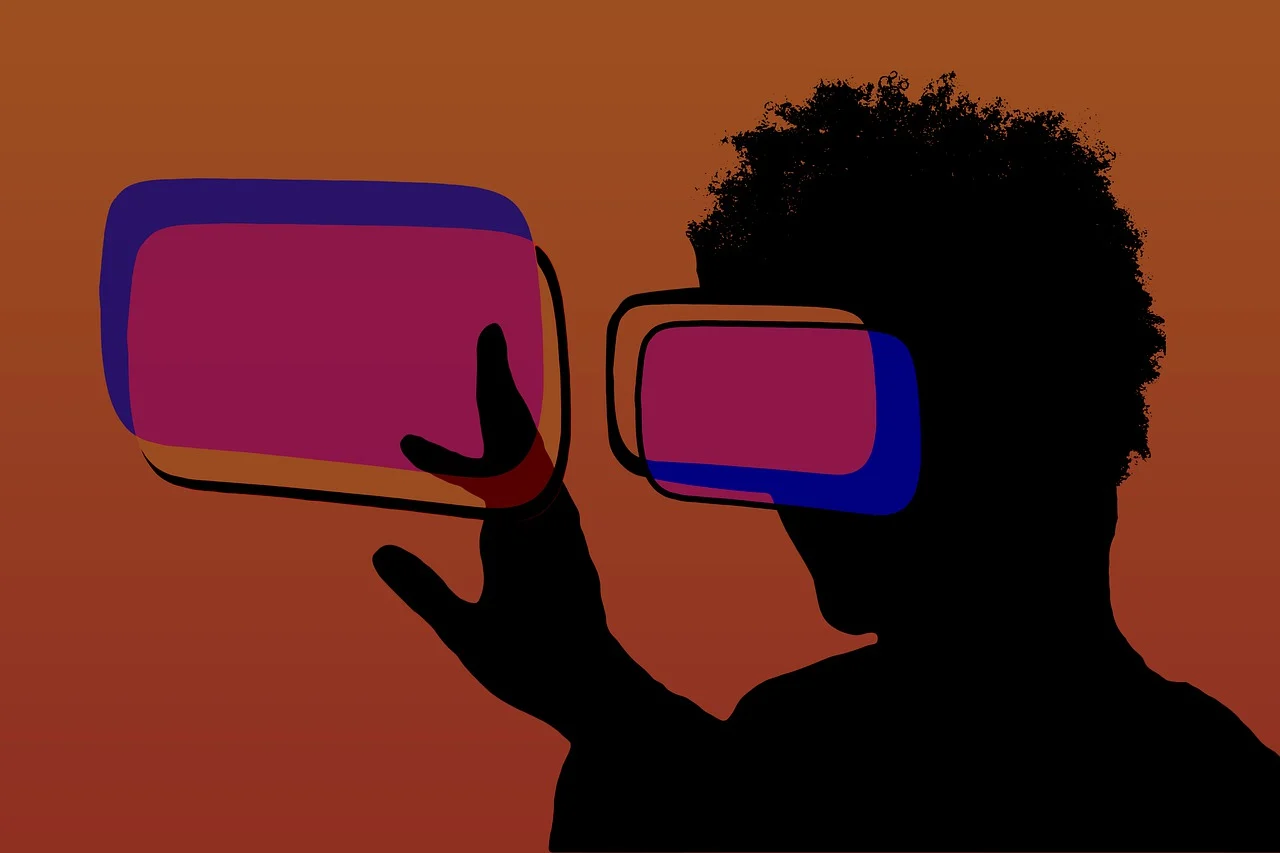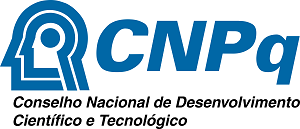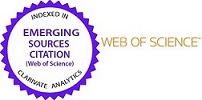O papel da realidade virtual na melhoria da qualidade da formação profissional dos professores de ciências naturais
DOI:
https://doi.org/10.25053/redufor.v9.e13866Palavras-chave:
Tecnologia da informação, Formação profissional, Professores, Programa de formaçãoResumo
O uso de tecnologias da informação, em particular a realidade virtual (RV), está se tornando uma questão atual no treinamento profissional de professores de ciências naturais. O estudo visa avaliar a eficácia de um programa de desenvolvimento profissional que utiliza a realidade virtual como uma ferramenta educacional para melhorar a qualidade do treinamento para professores de ciências naturais. Os resultados obtidos atestam o impacto positivo do uso da RV em vários aspectos do treinamento profissional de professores. O estudo descobriu que a atitude em relação à tecnologia melhorou significativamente após a introdução da RV (de 65% para 72%). A porcentagem de respostas positivas sobre a viabilidade do uso de tecnologias STEM (Ciência, Tecnologia, Engenharia e Matemática) na educação aumentou em 25%. O feedback dos alunos enfatiza a importância de integrar novas tecnologias na educação STEM. Pesquisas futuras devem examinar as necessidades de treinamento de professores STEM em diferentes contextos educacionais, explorar estratégias eficazes de integração de tecnologia e avaliar seu impacto nos resultados dos alunos.
Downloads
Referências
AGBO, F. J.; OYELERE, S. S.; SUHONEN, J.; TUKIAINEN, M. Design, development, and evaluation of a virtual reality game-based application to support computational thinking. Educational Technology Research and Development, [S.l.], v. 71, n. 2, p. 505-537, 2023. DOI: https://doi.org/10.1007/s11423-022-10161-5. DOI: https://doi.org/10.1007/s11423-022-10161-5
AL BREIKI, M.; AL ABRI, A.; AL MOOSAWI, A. M.; ALBURAIKI, A. Investigating science teachers’ intention to adopt virtual reality through the integration of diffusion of innovation theory and theory of planned behaviour: The moderating role of perceived skills readiness. Education and Information Technologies, [S.l.], v. 28, n. 5, p. 6165-6187, 2023. DOI https://doi.org/10.1007/s10639-022-11367-z. DOI: https://doi.org/10.1007/s10639-022-11367-z
CARABREGU-VOKSHI, M.; OGRUK-MAZ, G.; YILDIRIM, S.; DEDAJ, B.; ZEQIRI, A. 21st century digital skills of higher education students during Covid-19 - Is it possible to enhance digital skills of higher education students through E-Learning? Education and Information Technologies, [S.l.], v. 29, n. 1, p. 103-137. 2024. DOI: https://doi.org/10.1007/s10639-023-12232-3. DOI: https://doi.org/10.1007/s10639-023-12232-3
CHEN, C. H.; SYU, J. Y. Effects of integrating a role-playing game into a virtual reality-based learning approach on students’ perceptions of immersion, self-efficacy, learning motivation and achievements. British Journal of Educational Technology, [S.l.], v. 55, n. 5, p. 2339-2356. DOI: https://doi.org/10.1111/bjet.13436. DOI: https://doi.org/10.1111/bjet.13436
CUKUR, H. S. Technology integration beliefs and practices of Turkish novice EFL teachers after online practicum. Turkish Online Journal of Distance Education, [S.l.], v. 24, n. 3, p. 294-310, 2023. DOI: https://doi.org/10.17718/tojde.1138742. DOI: https://doi.org/10.17718/tojde.1138742
DALIMUNTHE, H. F.; SIMANJUNTAK, P. Android-based computer hardware introduction application using augmented reality. Computer and Science Industrial Engineering, [S.l.], v. 9, n. 2, 2023. DOI: https://doi.org/10.33884/comasiejournal.v9i2.7624. DOI: https://doi.org/10.33884/comasiejournal.v9i2.7624
DAYAL, S. Online education and its effect on teachers during COVID-19 - A case study from India. PLoS ONE, [S.l.], v. 18, n. 3, 2023. DOI: https://doi.org/10.1371/journal.pone.0282287. DOI: https://doi.org/10.1371/journal.pone.0282287
GORMAN, D.; HOERMANN, S.; LINDEMAN, R. W.; SHAHRI, B. Using virtual reality to enhance food technology education. International Journal of Technology and Design Education, [S.l.], v. 32, n. 3, p. 1659-1677, 2022. DOI: https://doi.org/10.1007/s10798-021-09669-3. DOI: https://doi.org/10.1007/s10798-021-09669-3
HAN, Y. Virtual reality in engineering education. SHS Web of Conferences, [S.l.], v. 157, 02001, 2023. https://doi.org/10.1051/shsconf/202315702001 DOI: https://doi.org/10.1051/shsconf/202315702001
HE, M.; RATANAOLARN, T.; SITTHIWORACHART, J. Design and implementation of online gaming for learning motivation and achievement improvement in computer information technology curriculum. Computer-Aided Design and Applications, [S.l.], v. 21, n. s5, p. 268-280, 2024. DOI: https://doi.org/10.14733/cadaps.2024.S5.268-280. DOI: https://doi.org/10.14733/cadaps.2024.S5.268-280
HOAI, V. T. T. et al. The current state of virtual reality and augmented reality adoption in Vietnamese education: A teacher’s perspective on teaching natural sciences. International Journal of Information and Education Technology, [S.l.], v. 14, n. 3, p. 476-485, 2024. DOI: https://doi.org/10.18178/ijiet.2024.14.3.2068. DOI: https://doi.org/10.18178/ijiet.2024.14.3.2068
HORBAN, O.; BABENKO, L.; LOMACHINSKA, I.; HURA, O.; MARTYCH, R. A knowledge management culture in the European higher education system. Naukovyi Visnyk Natsionalnoho Hirnychoho Universytetu, [S.l.], v. 2021. n. 3, p. 173-177, 2021. DOI: https://doi.org/10.33271/nvngu/2021-3/173. DOI: https://doi.org/10.33271/nvngu/2021-3/173
HORBAN, O.; PROTSENKO, O.; TYTARENKO, V.; BULVINSKA, O.; MELNYCHENKO, O. Cultural economics: The role of higher education institution in shaping the value systems. Naukovyi Visnyk Natsionalnoho Hirnychoho Universytetu, [S.l.], v. 1, p. 128-132, 2022. DOI: https://doi.org/10.33271/nvngu/2022-1/128. DOI: https://doi.org/10.33271/nvngu/2022-1/128
HUANG, Y.; RICHTER, E.; KLEICKMANN, T.; RICHTER, D. Comparing video and virtual reality as tools for fostering interest and self-efficacy in classroom management: Results of a pre-registered experiment. British Journal of Educational Technology, [S.l.], v. 54, n. 2, p. 467-488, 2023. DOI: https://doi.org/10.1111/bjet.13254. DOI: https://doi.org/10.1111/bjet.13254
HUO, Y.; WANG, A.; ZHAO, Y. PBL-based VR course for preservice teachers’ designing skills in applied university under coronavirus. Interactive Learning Environments, [S.l.], v. 31, n. 6, p. 3647-3663. DOI: https://doi.org/10.1080/10494820.2021.1939061. DOI: https://doi.org/10.1080/10494820.2021.1939061
KADMOS, H.; TAYLOR, J. No time to read? How precarity is shaping learning and teaching in the humanities. Arts and Humanities in Higher Education, [S.l.], v. 23, n. 1, p. 87-105, 2024. DOI: https://doi.org/10.1177/14740222231190338. DOI: https://doi.org/10.1177/14740222231190338
LEBRASSEUR, R. Virtual site visits: Student perception and preferences towards technology enabled experiential learning. International Journal of Emerging Technologies in Learning, [S.l.], v. 18, n. 2, p. 115-140, 2023. DOI: https://doi.org/10.3991/ijet.v18i02.32013. DOI: https://doi.org/10.3991/ijet.v18i02.32013
LI, C.; LI, Y. Feasibility analysis of VR technology in physical education and sports training. IEEE Access, [S.l.], 2024. DOI: https://doi.org/10.1109/ACCESS.2020.3020842. DOI: https://doi.org/10.1109/ACCESS.2020.3020842
MAROUGKAS, A.; TROUSSAS, C.; KROUSKA, A.; SGOUROPOULOU, C. Virtual reality in education: A review of learning theories, approaches and methodologies for the last decade. Electronics, [S.l.], v. 12, n. 12, 2832, 2023. DOI: https://doi.org/10.3390/electronics12132832. DOI: https://doi.org/10.3390/electronics12132832
RAJA, G. P.; SARAVANAKUMAR, A.; SIVAKUMAR, P. Perceptions and prospects: Technology-enabled teacher education in the digital age. European Journal of Theoretical and Applied Sciences, [S.l.], v. 1, n. 5, p. 969-973, 2023. DOI: https://doi.org/10.59324/ejtas.2023.1(5).84. DOI: https://doi.org/10.59324/ejtas.2023.1(5).84
RATNAWATI, D. et al. Synchronous and asynchronous learning activities as alternative distance learning models that are oriented to outcome-based education. Jurnal Dinamika Vokasional Teknik Mesin, [S.l.], v. 8, n. 1, 63, 2023. Available at: https://journal.uny.ac.id/index.php/dynamika/article/view/60742.
RODRIGUES, A. L. Integrating digital technologies in accounting preservice teacher education: A case study in Portugal. International Journal of Technology and Human Interaction, [S.l.], v. 18, n. 1, 2022. DOI: https://doi.org/10.4018/IJTHI.293200. DOI: https://doi.org/10.4018/IJTHI.293200
ROJAS-SÁNCHEZ, M. A.; PALOS-SÁNCHEZ, P. R.; FOLGADO-FERNÁNDEZ, J. A. Systematic literature review and bibliometric analysis on virtual reality and education. Education and Information Technologies, [S.l.], v. 28, n. 1, p. 155-192, 2023. DOI: https://doi.org/10.1007/s10639-022-11167-5. DOI: https://doi.org/10.1007/s10639-022-11167-5
ROMANO, M.; FROLLI, A.; ALOISIO, A.; RUSSELLO, C.; REGA, A.; CERCIELLO, F.; BISOGNI, F. Exploring the potential of immersive virtual reality in Italian schools: A practical workshop with high school teachers. Multimodal Technologies and Interaction, [S.l.], v. 7, n. 12, 2023. DOI: https://doi.org/10.3390/mti7120111. DOI: https://doi.org/10.3390/mti7120111
ROSAK-SZYROCKA, J. The era of digitalization in education where do universities 4.0 go? Management Systems in Production Engineering, [S.l.], v. 32, n. 1, p. 54-66, 2024. DOI: https://doi.org/10.2478/mspe-2024-0006. DOI: https://doi.org/10.2478/mspe-2024-0006
SHEREMET, O. S.; VOLUIKO, O. M.; POSMITNA, V. V.; PODA, T.; BIDZILYA, Y. M. Sociocultural dominants of developing students’ value intentions: Context of civilization challenges. Amazonia Investiga, [S.l.], v. 10, n. 45, p. 31-41, 2021. DOI: https://doi.org/10.34069/AI/2021.45.09.3. DOI: https://doi.org/10.34069/AI/2021.45.09.3
STOFKOVA, J.; POLIAKOVA, A.; STOFKOVA, K. R.; MALEGA, P.; KREJNUS, M.; BINASOVA, V.; DANESHJO, N. Digital skills as a significant factor of human resources development. Sustainability, [S.l.], v. 14, n. 20, 2022. DOI: https://doi.org/10.3390/su142013117. DOI: https://doi.org/10.3390/su142013117
THEODORIO, A. O. Examining the support required by educators for successful technology integration in teacher professional development program. Cogent Education, [S.l.], v. 11, n. 1, 2024. DOI: https://doi.org/10.1080/2331186X.2023.2298607. DOI: https://doi.org/10.1080/2331186X.2023.2298607
WEIDLICH, J.; KALZ, M. How well does teacher education prepare for teaching with technology? A TPACK-based investigation at a university of education. European Journal of Teacher Education, [S.l.], 2023. DOI: https://doi.org/10.1080/02619768.2023.2243645. DOI: https://doi.org/10.1080/02619768.2023.2243645
ZHYLIN, M.; MARAIEVA, U.; KRYMETS, L.; HUMENIUK, T.; VORONOVSKA, L. Philosophy of mass culture and consumer society: Worldview emphasis. Amazonia Investiga, [S.l.], v. 12, n. 65, p. 256-264, 2023. DOI: https://doi.org/10.34069/AI/2023.65.05.24. DOI: https://doi.org/10.34069/AI/2023.65.05.24

Downloads
Publicado
Como Citar
Edição
Seção
Licença
Copyright (c) 2024 Iryna Truskavetska, Olena Kyryienko, Lesia Buslenko, Borys Hrudynin, Oksana Hurska

Este trabalho está licenciado sob uma licença Creative Commons Attribution 4.0 International License.
Os autores possuem direitos autorais dos seus textos:
A revista Educação & Formação permite ao autor os direitos de publicação, no entanto, recomenda um intervalo de dois anos para o caso de republicação.
Os nomes e endereços informados nesta revista serão usados exclusivamente para os serviços prestados por esta publicação, não sendo disponibilizados para outras finalidades ou a terceiros.






















